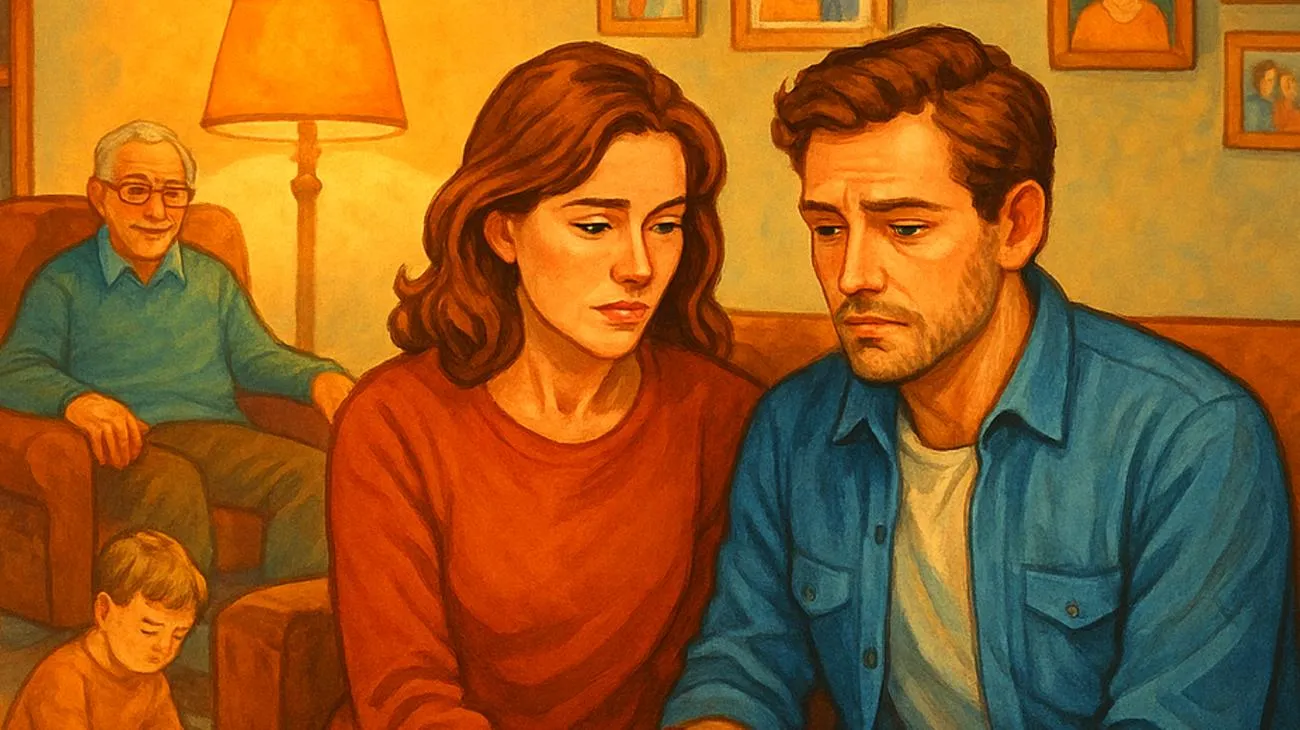The Hidden Blueprint: How Your Childhood Secretly Writes Your Love Story
Ever wonder why you keep attracting the same type of partner? Or why certain relationship patterns feel frustratingly familiar, like you’re stuck in some cosmic romantic rerun? Attachment theory, developed by psychologist John Bowlby attachment theory, developed by psychologist John Bowlby, has some mind-blowing answers that might just explain everything about your love life.
Here’s the thing: your brain is basically a relationship detective that never forgets a clue. Every hug, every argument, every moment of feeling safe or unsafe in your childhood home gets filed away in what psychologists call your “internal working model”. Think of it as your personal relationship GPS, quietly directing your love life based on the very first map you ever learned about how people connect.
Psychological research reveals something incredible: the way we experienced love, security, and communication during our early years creates invisible blueprints that continue to guide our adult relationships in ways we never consciously realize. These patterns might explain why some people struggle with intimacy while others become overly dependent on their partners, or why certain conflicts feel so triggering they seem to transport us back to childhood.
The Science Behind Your Relationship Patterns
Attachment theory, refined by decades of research, shows us that our earliest relationships with caregivers create lasting templates for how we approach love and connection. According to studies on attachment styles, these early experiences literally shape our nervous system’s responses to intimacy, trust, and emotional regulation.
Research by attachment specialists like Mary Main demonstrates that attachment styles formed in childhood predict adult relationship behaviors with remarkable consistency. When researchers followed children into adulthood, they found that early attachment patterns showed up in romantic relationships decades later, influencing everything from communication styles to conflict resolution approaches.
But here’s where it gets really interesting: your childhood doesn’t just influence who you’re attracted to—it influences how you love, fight, make up, and even how you interpret your partner’s actions. Literature reviews on childhood trauma and adult relationships reveal that these early experiences affect our ability to regulate emotions, maintain healthy boundaries, and navigate the complex dance of intimacy.
Seven Tell-Tale Signs Your Childhood Is Still Writing Your Love Story
Your Trust Meter Runs on Extreme Settings
If your childhood felt unpredictable—maybe caregivers were sometimes loving, sometimes distant, or perhaps promises were frequently broken—you might find yourself either trusting too quickly or building walls so high that even the most trustworthy partner feels locked out. Research shows that inconsistent early caregiving creates what psychologists call “anxious attachment,” where your nervous system stays on high alert for signs of abandonment or betrayal.
People with this pattern often describe feeling like they’re waiting for the other shoe to drop, even in healthy relationships. They might constantly seek reassurance or push partners away before they can be hurt first. This hypervigilance stems from a childhood brain that learned love could disappear without warning.
Intimacy Feels Like Speaking a Foreign Language
Growing up in households where emotions were minimized, dismissed, or seen as inconvenient can create adults who struggle with emotional intimacy. If phrases like “stop being so sensitive” or “big boys don’t cry” were common in your childhood, you might find yourself feeling uncomfortable when partners want to share feelings or when relationships require emotional vulnerability.
This shows up as what attachment researchers call “avoidant attachment”—you might be amazing at independence and self-reliance but feel claustrophobic when relationships demand deeper emotional connection. The irony is brutal: you crave closeness but your nervous system treats it like a threat because vulnerability wasn’t safe in your early experiences.
You’re Either Completely Independent or Completely Codependent
Childhood experiences of emotional neglect or parentification—where you had to be the “adult” too early—can create adults who swing between two extremes. Some become hyper-independent, convinced they can’t rely on anyone, while others become codependent, losing themselves completely in relationships.
Psychological research shows that both patterns stem from the same root: not learning healthy interdependence as a child. If your needs were consistently unmet or if you had to meet everyone else’s needs first, you might struggle to find that sweet spot where you can be both autonomous and connected. Your brain learned that either complete self-reliance or complete self-sacrifice were the only safe options.
Conflict Sends You Into Fight, Flight, or Freeze Mode
How your family handled disagreements creates lasting blueprints for how you navigate conflict in romantic relationships. If your childhood home featured explosive arguments, chronic silent treatments, or conflict that felt dangerous, your adult nervous system might still respond to normal relationship disagreements as if they’re life-threatening emergencies.
Studies on childhood trauma and adult relationships reveal that early exposure to intense conflict can create adults who either avoid conflict entirely—sometimes staying in bad relationships to avoid confrontation—or who escalate minor disagreements into major battles because their nervous system can’t distinguish between past and present threats. Your brain remembers that conflict meant danger, even when your current partner just wants to discuss whose turn it is to do dishes.
You Have a Sixth Sense for Reading People But It’s Exhausting
Children who grew up in unpredictable environments often develop hypervigilant social skills as a survival mechanism. If you had to constantly monitor a parent’s mood to feel safe, you might now find yourself automatically scanning your partner’s face, tone, and body language for signs of displeasure or rejection.
While this can make you incredibly empathetic and intuitive, it can also be exhausting. You might find yourself taking responsibility for your partner’s emotions or constantly adjusting your behavior based on subtle cues that might not even mean what you think they mean. Your childhood brain learned that other people’s emotions were your responsibility to manage, and that hypervigilance was the price of safety.
Your Internal Critic Has a Familiar Voice
The way caregivers spoke to you becomes the way you speak to yourself, and this inner voice significantly impacts your relationships. If you grew up hearing messages like “you’re too much,” “you’re not enough,” or “love is earned through perfection,” these beliefs continue operating in your adult relationships, often unconsciously.
Research on attachment and self-worth shows that people who received consistent, unconditional love in childhood typically have more secure relationships as adults because they don’t constantly question their worthiness of love. Conversely, those who experienced conditional love or criticism might find themselves people-pleasing, perfectionism, or constantly seeking validation from partners. That critical voice in your head often sounds suspiciously like someone from your past.
You Repeat Patterns You Swore You’d Never Repeat
Perhaps the most mind-bending sign that childhood is influencing your relationships is when you find yourself recreating dynamics you consciously want to avoid. Maybe you promised you’d never be as controlling as one parent, yet you catch yourself trying to manage your partner’s choices. Or perhaps you swore you’d never be as passive as you witnessed growing up, yet you struggle to advocate for your needs.
Psychological research reveals this happens because our nervous systems are wired to seek the familiar, even when the familiar isn’t healthy. Your brain literally recognizes certain relationship dynamics as “home,” even if home wasn’t particularly nurturing. It’s like your unconscious mind is following a script you never agreed to audition for, but somehow memorized perfectly.
Understanding These Patterns in Different Contexts
These relationship patterns show up across all cultures and backgrounds, though they might express themselves differently depending on your family’s values and traditions. Whether you grew up in a family that emphasized emotional expression or one that valued stoic resilience, whether individual needs or collective harmony took precedence, the same fundamental attachment principles apply.
Many people find themselves navigating between family expectations and their own relationship needs, which can create unique challenges. You might discover that your relationship patterns reflect not just your immediate family dynamics, but also broader cultural messages about emotional expression, gender roles, and what constitutes a successful partnership.
The Beautiful Plot Twist: You’re Not Doomed by Your Past
Before you start panicking about being forever trapped by your childhood experiences, here’s the incredible plot twist: recognizing these patterns is actually the first step toward changing them. Neuroscience research shows us that our brains remain remarkably plastic throughout our lives, meaning we can literally rewire our relationship patterns through conscious effort and practice.
Studies on trauma-informed therapy approaches demonstrate that adults can develop what researchers call “earned security”—essentially, learning secure attachment patterns even if they didn’t experience them in childhood. This happens through healing relationships, therapy, mindfulness practices, and the simple but profound act of becoming aware of how your past influences your present.
The key insight from decades of psychological research is this: while childhood experiences create powerful blueprints for adult relationships, they’re not permanent sentences. Understanding how your early experiences shaped your relationship patterns gives you the power to make conscious choices rather than unconscious reactions. You’re not broken, and you’re definitely not doomed to repeat your parents’ relationship patterns.
Some practical steps that research shows can help include developing emotional awareness through mindfulness, learning to communicate needs directly rather than through old survival strategies, and practicing new responses to triggers instead of automatically falling back on childhood patterns. The process takes time and patience, but the results can be transformative.
Rewriting Your Love Story
Your childhood wrote the first draft of your relationship story, but you get to be the editor of every chapter that comes next. By recognizing how early experiences continue to influence your adult relationships, you’re taking the first step toward more conscious, intentional, and fulfilling connections.
Remember, the goal isn’t to blame your caregivers or become trapped by your past, but to understand how your early experiences created certain patterns so you can choose which ones serve you and which ones you’re ready to outgrow. Some of those childhood survival strategies might have been brilliant adaptations that kept you safe, but they might not be serving your adult relationships anymore.
Psychology research consistently shows that relationships can be healing spaces where we learn new ways of connecting, trusting, and loving. Your childhood might have written the opening chapters of your relationship story, but you hold the pen for everything that comes next. And here’s the really beautiful part: the very act of understanding these patterns often begins to loosen their grip on your life.
The most amazing love stories are often the ones where people learn to love differently than they were taught, creating new patterns of connection that honor both their history and their hopes for the future. Your past gave you valuable information about relationships, but it doesn’t get to dictate your future. That’s entirely up to you.
Table of Contents

